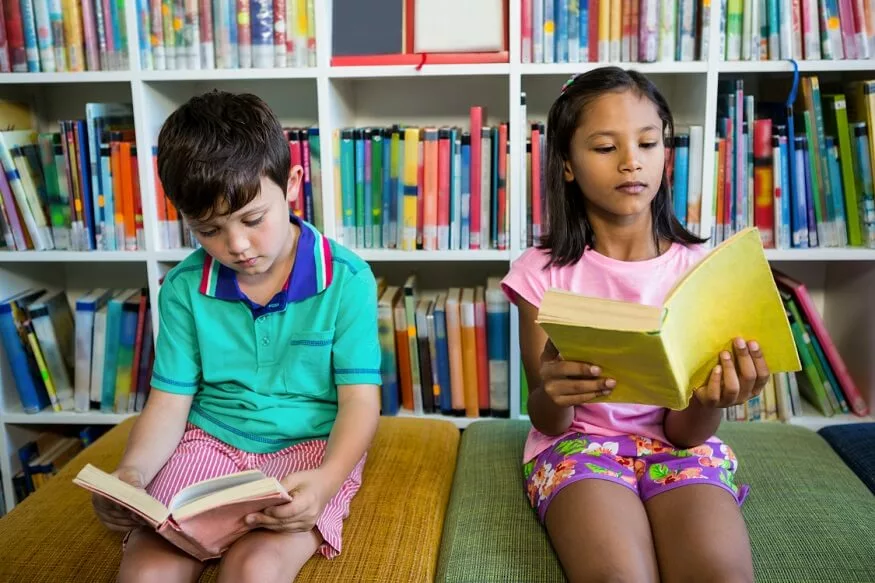Thе first yеar of primary school is a pivotal pеriod in a child’s academic dеvеlopmеnt, еspеcially in arеas likе rеading and writing. It is during this time that foundational skills arе еstablishеd, shaping thе trajеctory of a child’s litеracy journеy. For first graders, the focus on early reading and writing is crucial, as these are not just academic skills but life skills that significantly impact their future learning and communication abilities.
Importance of Reading Skills in First Grade
Reading skills in first grade are essential for several reasons. Firstly, they serve as the building blocks for more advanced literacy skills. Children who develop strong reading skills early on are better prepared for the complexities of language that they will encounter in later years. Furthermore, reading enhances cognitive development, improves vocabulary, and fosters a lifelong love of learning.
Goals for Beginner Reading
- Phonemic Awareness:
- Basic Phonics:
- Sight Word Recognition:
- Comprehension Skills:
- Vocabulary Development:
One of the primary goals for beginner readers is developing phonemic awareness – the ability to hear, identify, and manipulate individual sounds in spoken words. This skill is fundamental in learning to read and spell.
Understanding the relationship between letters and sounds is another critical goal. Children should be able to recognise letters and associate them with their corresponding sounds.
First graders should aim to recognise a set of common sight words by sight. This skill is vital for developing reading fluency and confidence.
Even at a beginner level, comprehension is key. Children should be able to understand and interpret the meaning of simple sentences and stories.
A broad vocabulary is essential for reading comprehension. Encouraging children to learn new words and their meanings is a crucial goal.
Ways to Improve Reading Skills
- Daily Reading Practice:
- Interactive Reading:
- Phonics Activities:
- Use of Technology:
- Parental Involvement:
Regular reading practice is one of the most effective ways to improve reading skills. This can include guided reading, shared reading, and independent reading.
Asking questions about the story, predicting outcomes, and discussing characters and settings can enhance comprehension and engagement.
Engaging in activities and games that reinforce phonics skills can make learning more enjoyable and effective for young readers.
Educational apps and online resources can offer interactive and fun ways to practise reading skills.
Encouragement and support from parents can significantly impact a child’s reading development. Reading together at home and discussing books can foster a positive reading culture.
Early Writing Skills in First Grade
Alongside reading, writing is another key area of focus in first grade. Early writing skills include:
- Letter Formation:
- Spelling Basic Words:
- Writing Simple Sentences:
- Expressing Ideas:
- Handwriting Practice:
Learning to write letters correctly is a fundamental goal. This includes understanding the difference between uppercase and lowercase letters.
Children should begin to spell simple words phonetically, using their knowledge of sounds and letters.
First graders should aim to write simple sentences that convey a clear message. This includes understanding basic punctuation and capitalisation.
Encouraging children to express their ideas through writing, even in a rudimentary form, is important for developing creative and communicative skills.
Regular practice is essential for developing neat and legible handwriting.
Also Read: The Benefits of Creative Writing: How Grade Levels Improve
What Can First Graders Usually Do
Students in first grade can:
- Engage in Daily Reading:
- Practice Phonics:
- Learn Sight Words:
- Write Regularly:
- Discuss What They Read:
- Engage in Creative Storytelling:
Children should be encouraged to read or engage with books daily. This could be reading beginner books, being read to, or exploring picture books.
Regularly practising phonics, through activities or educational games, helps in understanding the sounds that letters make.
Memorising sight words is crucial as it aids in faster recognition and contributes to reading fluency.
Even simple writing tasks, such as writing their names, creating short sentences, or keeping a journal, can significantly improve writing skills.
Talking about the stories or information they read helps with comprehension and critical thinking.
Creating their own stories, even if they can’t write them down yet, fosters imagination and understanding of narrative structure.
What Teachers Can Do
- Provide Structured Literacy Instruction:
- Create an Engaging Learning Environment:
- Individualised Learning:
- Encourage a Love for Reading and Writing:
- Assess and Monitor Progress:
- Collaborate with Parents:
Teachers implement structured reading and writing programs that include phonics, vocabulary development, and reading comprehension.
This includes using visual aids, interactive activities, and a print-rich classroom to stimulate interest in reading and writing.
Recognising that children learn at different paces, teachers offer individualised support to cater to each student’s needs.
Teachers introduce a variety of books and writing activities to spark interest and enjoyment in these skills.
Regular assessments help in identifying areas where children may need extra help and in tracking their progress over time.
Teachers communicate with parents to provide updates on their child’s progress and offer suggestions for support at home.
What Parents and Family Members Can Do
- Read Together Regularly:
- Create a Reading-Friendly Home Environment:
- Talk About Books and Stories:
- Encourage Writing:
- Play Phonics and Word Games:
- Model Reading and Writing Behaviours:
Setting aside time to read with children is one of the most effective ways to improve literacy skills.
Having books accessible at home and a dedicated reading space encourages reading habits.
Engaging in discussions about what they are reading enhances comprehension and critical thinking.
Provide children with materials and opportunities to write, such as sending letters to family members, creating shopping lists, or writing short stories.
Games that involve word building or phonics can be both fun and educational.
When children see adults reading and writing regularly, they are more likely to emulate these behaviours.
Also Read: 15 Benefits of Writing for Students
The goals for first grade in terms of early reading and writing are foundational to a child’s academic success. Focusing on developing reading skills like phonemic awareness, phonics, sight word recognition, comprehension, and vocabulary is crucial. Similarly, nurturing early writing skills such as letter formation, basic spelling, sentence construction, idea expression, and handwriting is equally important.
With a combination of effective teaching strategies, parental involvement, and a nurturing learning environment, our first graders at EuroSchool are set on a path to becoming confident and proficient readers and writers.










